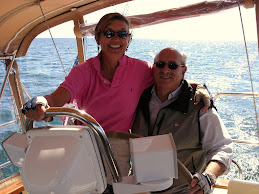1. The Numbers Don’t Lie? Once again we are faced with an incredible array of numbers coming out of respected professionals who are trying to figure out the impact of the National recession. The problem is that the numbers can be made to say anything, but a careful review will show that no matter whose numbers are used, the picture is not rosy. Take for example the Gross Domestic Product (“GDP”). The Government released figures in January showing a decline in GDP for 2008 of 3.1 %, the worst in over a decade, clearly signaling the fact that the recession was worse than most economists had predicted. On February 27th, after the markets closed, the Government revised the GDP loss to a whopping 6.2 %. Stocks world-wide are tumbling on that piece of bad news, in fear of a longer recovery period. The downward spiral seems to continue with the report that even revered investor Warren Buffet lost $11.5 billion in the net worth of his Berkshire-Hathaway Corporation.
2. What is the impact on the Inn Business. First, it is hard to get numbers for the Bed and Breakfast Inn business separately. Smith Travel Research (“STR”) is the most respected source of historical numbers for the Hospitality Business, but does not collect data from small properties (under 50 rooms). One data release from STR shows that New England seemed to be holding its own relative to the US National data. For example, December, 2008 results for New England included a drop in occupancy rate of -2.1%, while Average Daily Rate (“ADR”) decreased by -3.6%. This resulted in a huge decrease in Revenue Per Available Room (“REVPAR”) of -5.7%. The National figures during the same December period showed larger decreases in Occupancy of -6.8%, in ADR of -3.2%, and a REVPAR decrease of -6.6%.
For the Year 2008 as a whole the figures are also instructive. New England showed a decrease in occupancy of -2.8%, but an increase in ADR of 1.9%, resulting in a miniscule decrease in REVPAR of -0.9%. The National figures for 2008 were far worse, with a decrease in occupancy of -4.2%, but an increase in ADR of +2.4%, resulting in a decrease of -1.9% in REVPAR.
The numbers from STR show that, until about September, 2008 was a growth year with higher occupancies that dropped precipitously in the 4th Quarter. Rates were still climbing in December, as the Hospitality Business seemed to lag in discounting. Overall, 2008 would be a down year, but only in comparison to the strong growth in the prior three years.
3. New England is not the same. One interesting thing that jumps out of the results shown by STR is that the New England States are not homogeneous. In fact, it was clear in both the December and National results for 2008 that Northern New England (Maine, New Hampshire, and Vermont) fared much better individually than the Nation or their Southern New England counterparts. For example, for 2008 as a whole, Vermont showed an increase in occupancy of +1.9%, an increase in ADR of 4.8% along with a REVPAR increase of +6.8%. While the results in Maine and New Hampshire were more consistent, they were slightly worse than New England as a whole. The bottom line was that overall, 2008 was a non-growth year, with a really cloudy picture for 2009.
4. The Real Data comes from Sales Tax Revenues. Another well respected source of industry research comes from Atlanta-based PKF Hospitality Research (“PKF”). Utilizing results of sales tax collections in Maine, PKF reported that September lodging sales in that state dropped by -12% from 2007, and continued to drop by -2.6% in October on a year-to-year basis. While Maine finished the year 2008 slightly ahead of 2007 (+0.7% growth in revenue), this came after 6% annual growth in the preceding three year period. PKF is projecting as a whole a -7.8% decline in REVPAR for Maine in 2009, which would make it one of the steepest declines in recorded history since the 1930’s. PKF also predicts that Maine will not fare as worse as others, because of its relative low cost and its rural location which fosters escape from the big cities. Presumably this would apply to all of Northern New England with similar characteristics prevalent throughout the region.
5. Summary: Batten Down the Hatches! No one likes to consistently hear bad news, but there is little about the economy that seems to be saying that things are going to get better soon. Predictions for a recovery in late 2009 and early 2010 are all that we have to go on, but most economists are hedging on those dates. Similar to the broad-based declines in 4th Quarter, 2008, retail spending, the American consumer seems to have switched to a survival mode, and this does not bode well for discretionary spending at least until there is some better news on the horizon. We have advised our consulting clients of the following:
a. Budget for a decrease in revenue of about 10% for 2009, adjusting expenses as much as possible to that revenue;
b. Increase spending in Marketing, particularly electronic marketing to capture market share;
c. Neither increase or decrease overall rack room rates. Develop packages with adventure travel features which show good overall value. Up-sell rooms whenever possible, and include value-added options with all room rates. Partner with local businesses and cross-market as much as you can.
d. Hold discretionary spending to a minimum and build cash wherever possible in the event that this recession lasts longer than expected. Do not defer necessary repairs and maintenance, but this is not the year to spend money on capital improvements.
e. Remember why you came into the Hospitality Business. It is all about the guests and not the Innkeepers!
f. This too shall pass. Look to the future, because the past is gone forever.
Subscribe to:
Post Comments (Atom)

No comments:
Post a Comment